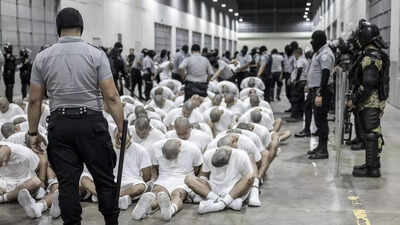Federal judges in Texas and New York have temporarily blocked the US government from deporting five Venezuelan men held in detention. The court orders only apply to detainees in specific areas but could set a precedent for broader challenges.
These rulings come amid legal challenges to the Trump administration’s use of the rarely applied Alien Enemies Act, which allows deportation or detention of noncitizens during wartime.
The men have denied any ties to the Venezuelan gang, Tren de Aragua, and are being represented by civil rights lawyers from the American Civil Liberties Union (ACLU).
The Alien Enemies Act is a law that dates back to the 18th century and has only been used during the War of 1812, World War I, and World War II.
The law permits the president to detain or deport noncitizens from countries the US is at war with. However, the US is not at war with Venezuela. Despite this, the Trump administration has labelled certain migrants as threats, alleging that gang members are “invading” the US. So far, over 100 Venezuelans have been deported without a chance to argue their case in court.
The recent Supreme Court ruling allowed deportations under this law to continue but required that detainees receive basic legal rights before removal. In response, civil liberties lawyers are pushing for broader protections and have filed class action lawsuits on behalf of all similarly detained individuals.
In Texas, Judge Fernando Rodriguez Jr blocked deportations at El Valle Detention Center, where three men, including one with HIV, are being held. In New York, Judge Alvin Hellerstein issued a similar order for detainees in the Southern District, which covers Manhattan, the Bronx, and nearby counties.
The ACLU has criticised the identification method used to label detainees as gang members, calling it unreliable. According to them, the system assigns points based on tattoos, clothing, and gestures, but lacks solid evidence. The organisation is now seeking a nationwide order to avoid fighting similar cases in every judicial district.
Meanwhile, the Trump administration has indicated it plans to expand the use of the law to target members of other gangs, including MS-13.







